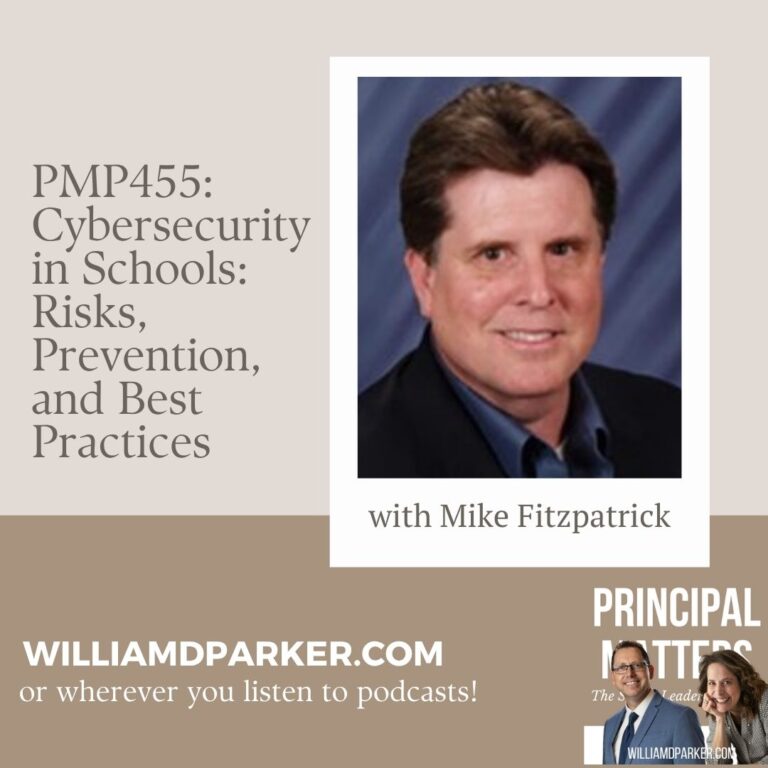Podcast: Play in new window | Download
In episode 10 of Principal Matters Podcast, we dive into some of the practical ways to make school leadership more effective.

Dealing with difficult people is often one of the hardest and most frequent challenges you will face, but you don’t have to be overwhelmed. No one can learn to manage difficulties perfectly, but you can learn practical ways to minimize drama, stay focused on outcomes, and maintain your self-dignity in the process.
Check out the companion blog post to this episode HERE.
Here are show-notes for PMP Episode 10:
School leadership not only involves creating great learning environments, but it also includes dealing with people who challenging or sometimes just plain mean. So here are some tips I’ve learned over the years:
1. Make sure you’re not the difficult person.
Check your own attitude first when stepping into an emotionally charged situation. Display an open attitude, and remember that the person you’re encountering usually has not seen your whole day or you theirs. Your own attitude makes a big difference.
2. Seek to understand before being understood.
Taking notes, listening first, asking them to re-explain themselves…each of these are ways to position yourself for understanding before rashly commenting or over-reacting. Sometimes people need to simply feel like they’ve been heard.
3. Be firm but friendly.
Speak the truth with kindness. Sometimes leadership means shooting straight or even being blunt when necessary. But this can be done in a way where you maintain the dignity of the other person and your own as well. How do you want this person to remember you after your conversation is over?
4. Change your posture or use humor when appropriate.
Believe it or not, your mannerisms convey whether you are an ally or an enemy. Your body-language helps you deliver straight-talk with much more effectiveness. So open palms, eye-contact, voice-level and body posture can make a big difference in how you communicate.
5. Sometimes you have to agree to disagree.
If you can’t reach a mutual agreement with others, remember the goal isn’t about who is winning or losing. It’s okay to say, “We may have to agree to disagree.” When you demonstrate mutual respect for someone with whom you disagree, you can still look that person in the eye later.
6. Sometimes you need to bring someone else to the table.
Some meetings are counterproductive or unnecessary because the wrong people are having the conversation. For instance, when a parent is upset with a teacher, he or she should talk to that person first. It’s also unfair to discuss other people who are a part of the solution without including them in that conversation.
Conclusion
You can go a long way to turn difficult conversations into more productive ones when you practice simple steps like checking yourself, understanding others, remaining firm and friendly, changing your posture, agreeing to disagree, and bringing others to the table.
Now It’s Your Turn
What are some other ways you would suggest when dealing with difficult people? If you found this episode helpful, pass it along to others!
Rate PMP on iTunes!
Visit iTunes and leave a comment; when you do, it makes PMP more visible to others!
Sign-Up For Free Updates and Ebook
When you enter your email address below, you will automatically receive my newest posts and a free Ebook, 8 Hats: Essential Roles for School Leaders. Let’s keep learning together!
Subscribe for free weekly updates and receive free e-book!
(function($) {window.fnames = new Array(); window.ftypes = new Array();fnames[0]=’EMAIL’;ftypes[0]=’email’;fnames[1]=’FNAME’;ftypes[1]=’text’;fnames[2]=’LNAME’;ftypes[2]=’text’;}(jQuery));var $mcj = jQuery.noConflict(true);
Principal Matters–The Book!

School leaders are very busy, so each of the twenty-four chapters is designed as a quick-read and followed with take-action questions for follow-up or reflection. If you want practical ideas on understanding your purpose, managing school teams, dealing with challenges, and leading with courage, action, motivation, and teamwork, go HERE to pick up a copy for you or your team.


